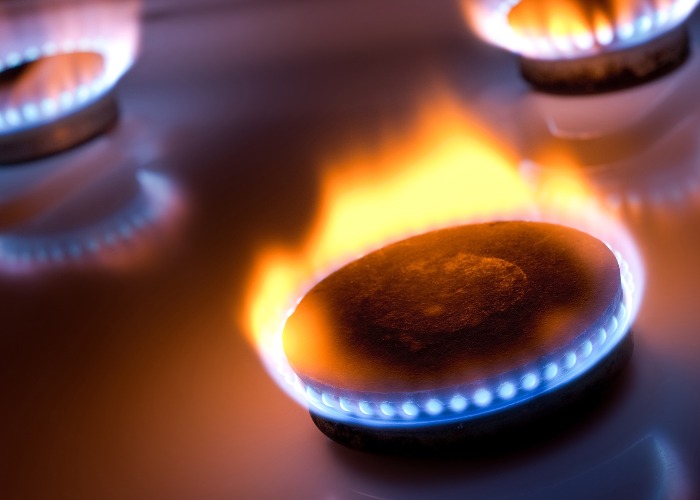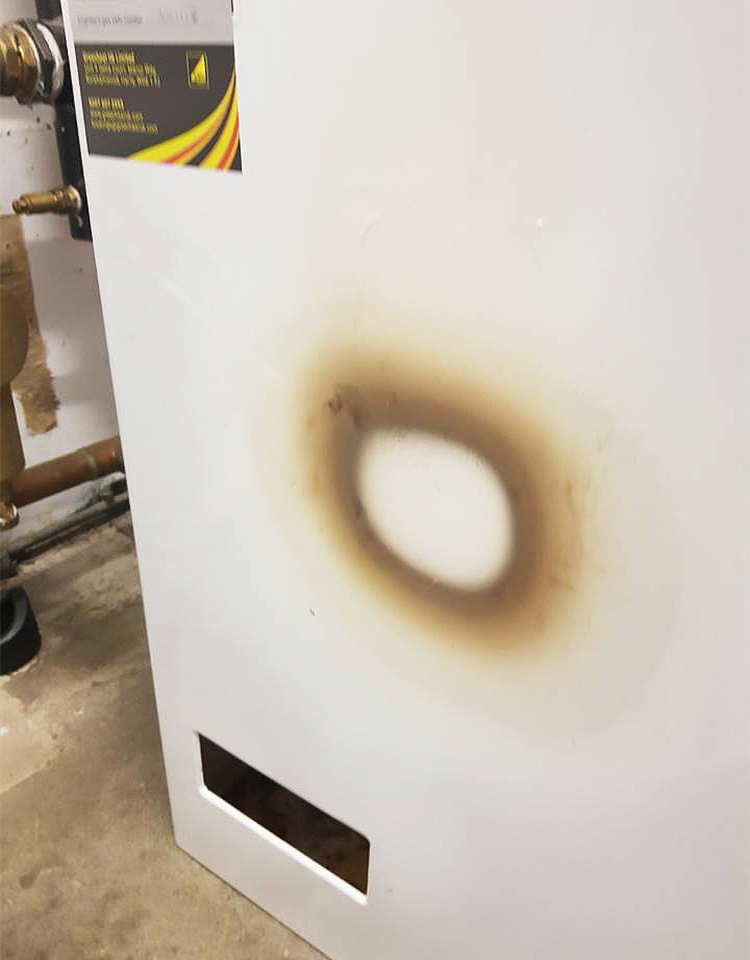This one red flag is a gas safety warning sign (but there are five to look out for)

Routine checks have identified 26,000 unsafe appliances in 5% of UK homes. Here are the five warning signs that your gas isn't safe...
We all know the importance of having working smoke alarms in our homes, but we are a lot less vigilant about the things that might spark a fire in the first place, according to research by British Gas.
British Gas says that in the first seven months of this year alone its engineers have identified a shocking 26,000 unsafe appliances in customer homes while carrying out routine safety checks on energy meter installations.
READ MORE: Hidden hazards lurking in your home
Silent threat
The most common faults found were with boilers and old cookers, with one British Gas customer found to have a cooker leaking dangerous levels of carbon monoxide.

A scorch mark on a boiler is a sign that the boiler needs urgent attention and should be checked immediately by a certified engineer. Image: Greenheat UK Ltd / Facebook
This Gas Safety Week (16-22 September 2019), Gas Safe Register – the UK’s official registration body for gas engineers and gas businesses – is urging people to protect themselves and their loved ones by familiarising themselves with the signs and symptoms of unsafe gas appliances.
The key signs are:
- Floppy yellow or orange flames on gas appliances, such as cookers, instead of a bright blue one
- Increased condensation inside windows
- The pilot light repeatedly going out or the boiler fails to light
- Black or sooty marks on or around your gas appliances
- Feeling unwell – the six main symptoms of carbon monoxide poisoning are: headaches, dizziness, nausea, breathlessness, collapse and loss of consciousness
Figures from British Gas also show that on average each person has three broken electrical gadgets in their home, from toasters and laptops through to lighting and boilers, with 63% of people admitting that they had used an appliance despite knowing it was faulty.
Keeping your home safe
Lauren Vazquez, engineer and safety expert for British Gas, says: “We’re regularly visiting customers who haven’t had their electrical wiring or gas appliances checked in 10-20 years which is a concern.
“We all have so many gadgets in the house nowadays that it can be difficult to keep on top of them all, but it’s important to keep an eye on whether they’re working as they should. Some of the unsafe appliances we’ve come across could have had a devastating effect on our customers’ health and safety, had we not identified them.”
British Gas is also raising awareness of the importance of having carbon monoxide detectors fitted, especially for parents of newborn babies, who can be severely affected by leaks.
Vazquez says: “You can’t hear it, see it, taste it or smell it, and it kills around 30 people a year – but fortunately, carbon monoxide poisoning is preventable.”
Follow these six golden rules to help keep you safe and warm in your home:
- Only use a Gas Safe registered engineer to fit, fix and service your appliances. You can find and check an engineer at GasSafeRegister.co.uk or call 0800 408 5500.
- Check both sides of your engineer’s Gas Safe Register ID card. Make sure they are qualified for the work you need doing. You can find this information on the back of the card.
- Have all your gas appliances regularly serviced and safety checked every year. If you rent your home, ask for a copy of the landlord’s current Gas Safety Record.
- Know the six signs of carbon monoxide (CO) poisoning – headaches, dizziness, breathlessness, nausea, collapse and loss of consciousness. Unsafe gas appliances can put you at risk of CO poisoning, gas leaks, fires and explosions.
- Check gas appliances for warning signs that they are not working properly e.g. lazy yellow flames instead of crisp blue ones, black marks or stains on or around the appliance and condensation in the room.
- Fit an audible carbon monoxide alarm. This will alert you if there is carbon monoxide in your home.
READ MORE: Plastic-backed fridges are putting lives at risk says consumer watchdog
Photo: Vereshchagin Dmitry/Shutterstock
Comments
Be the first to comment
Do you want to comment on this article? You need to be signed in for this feature